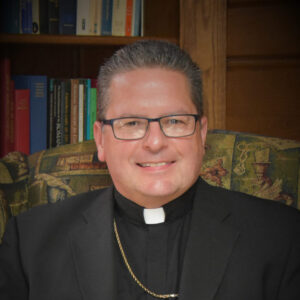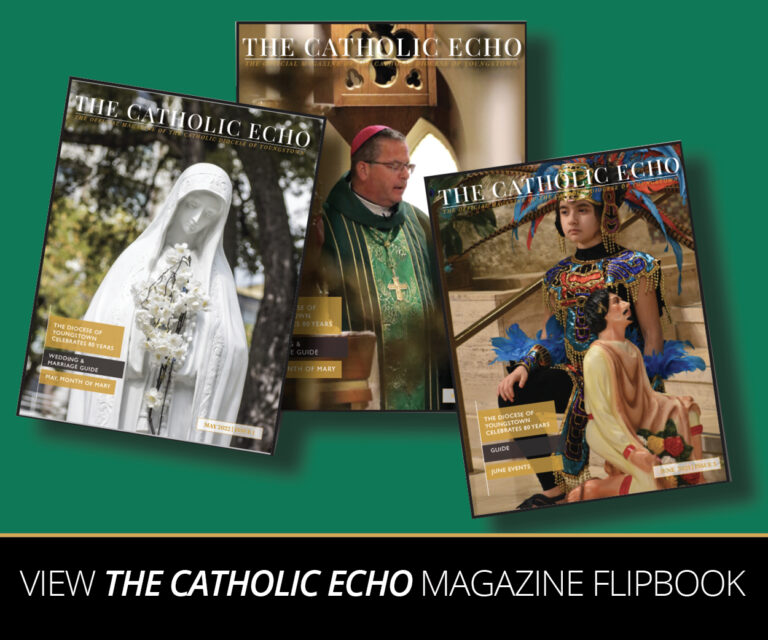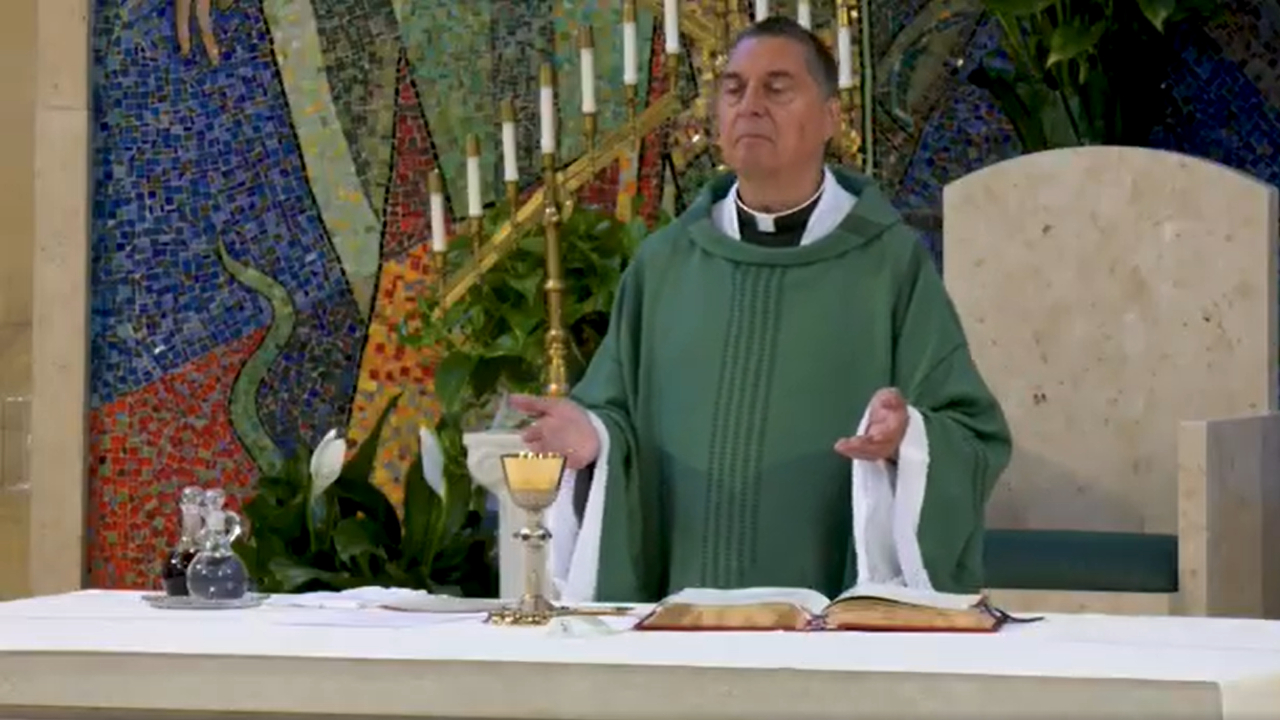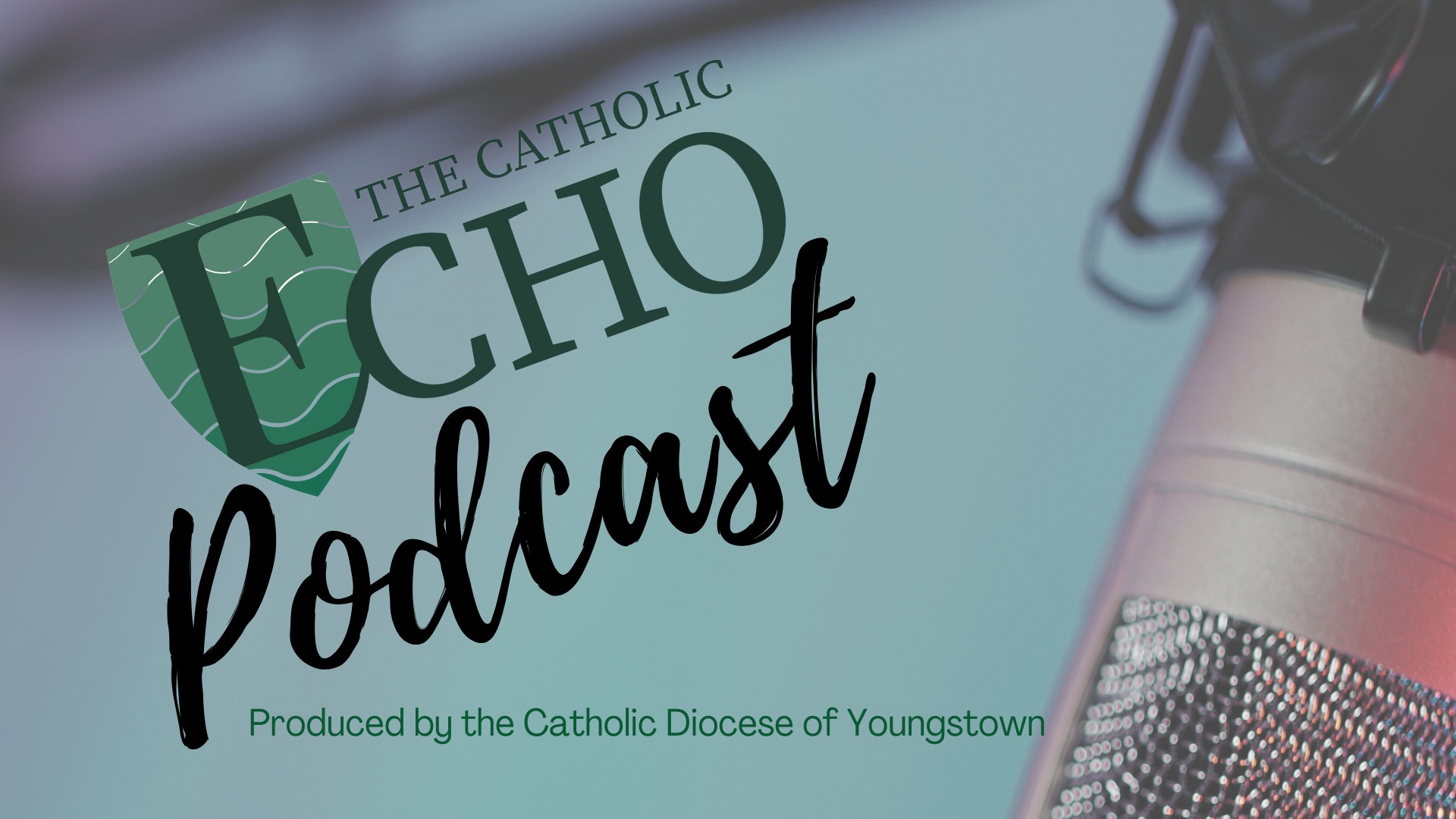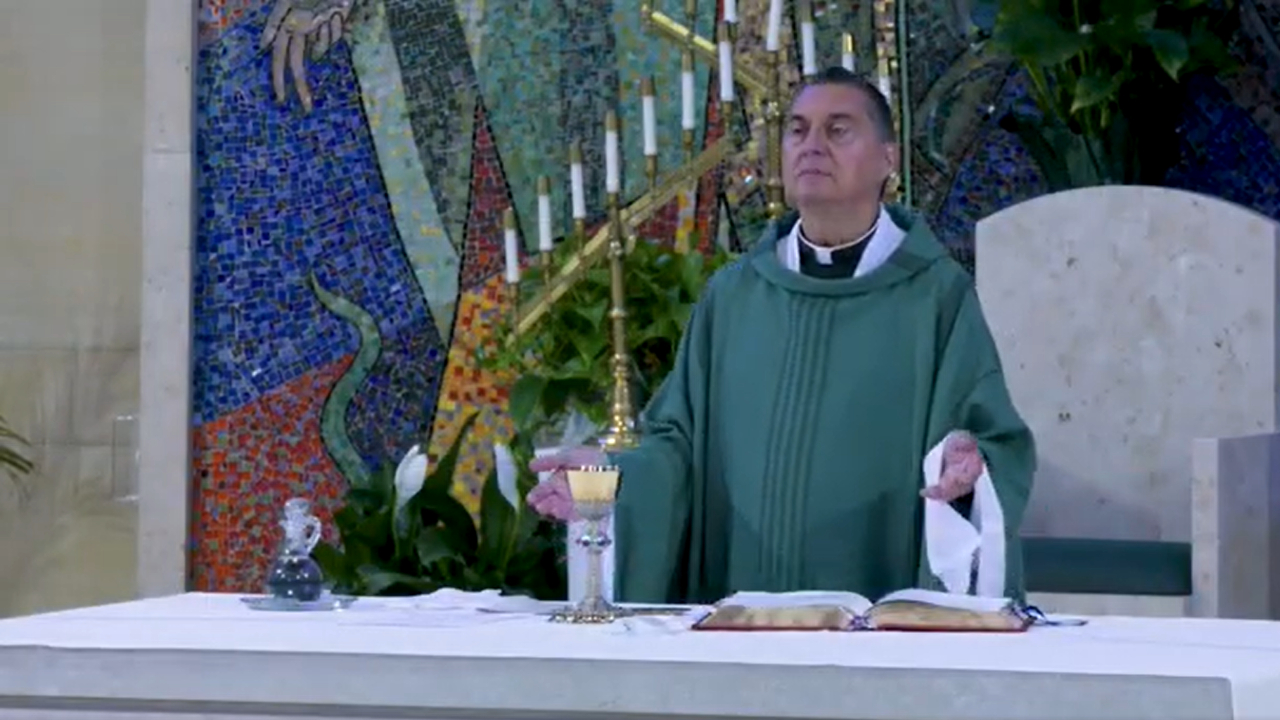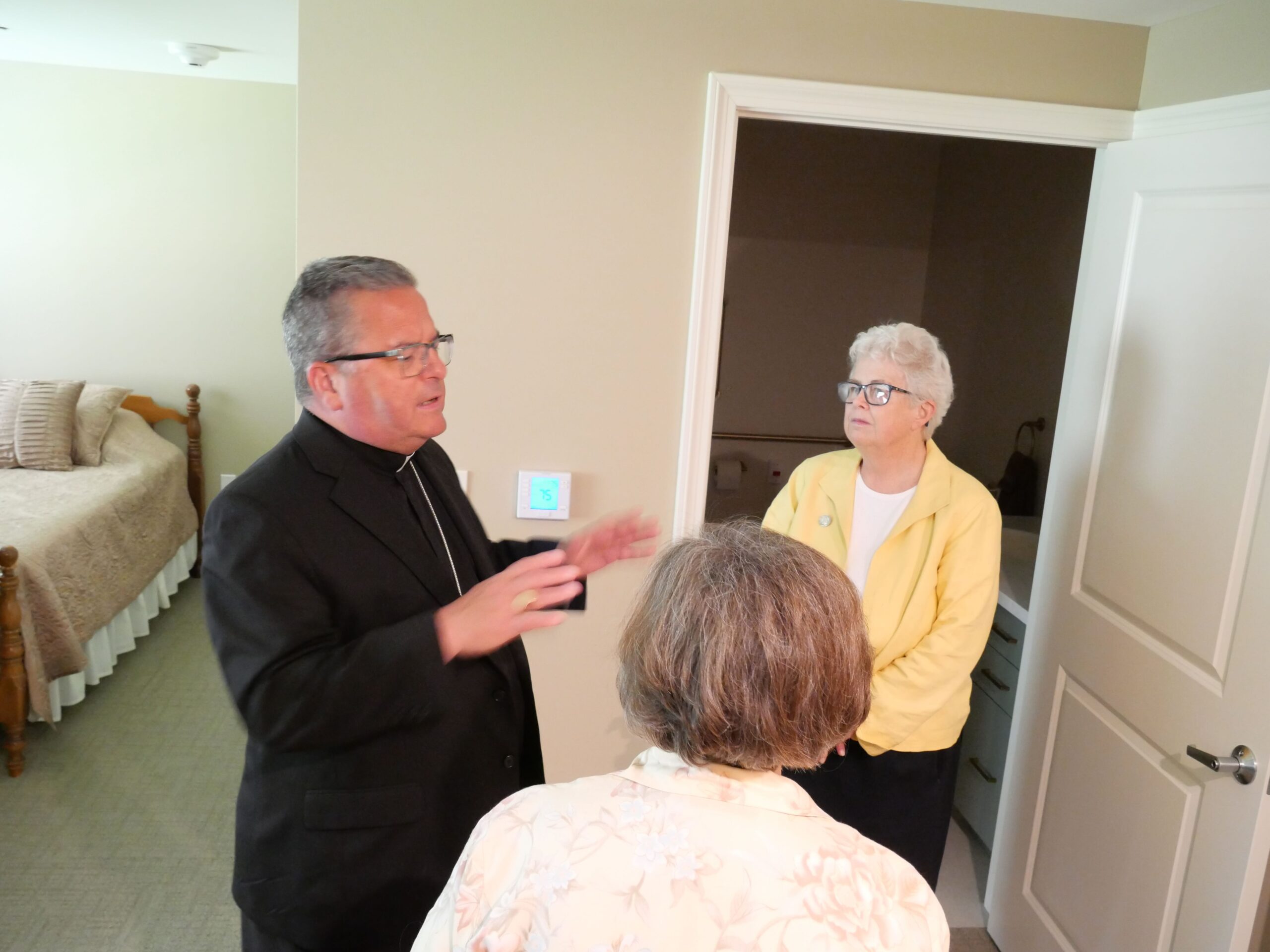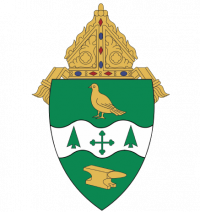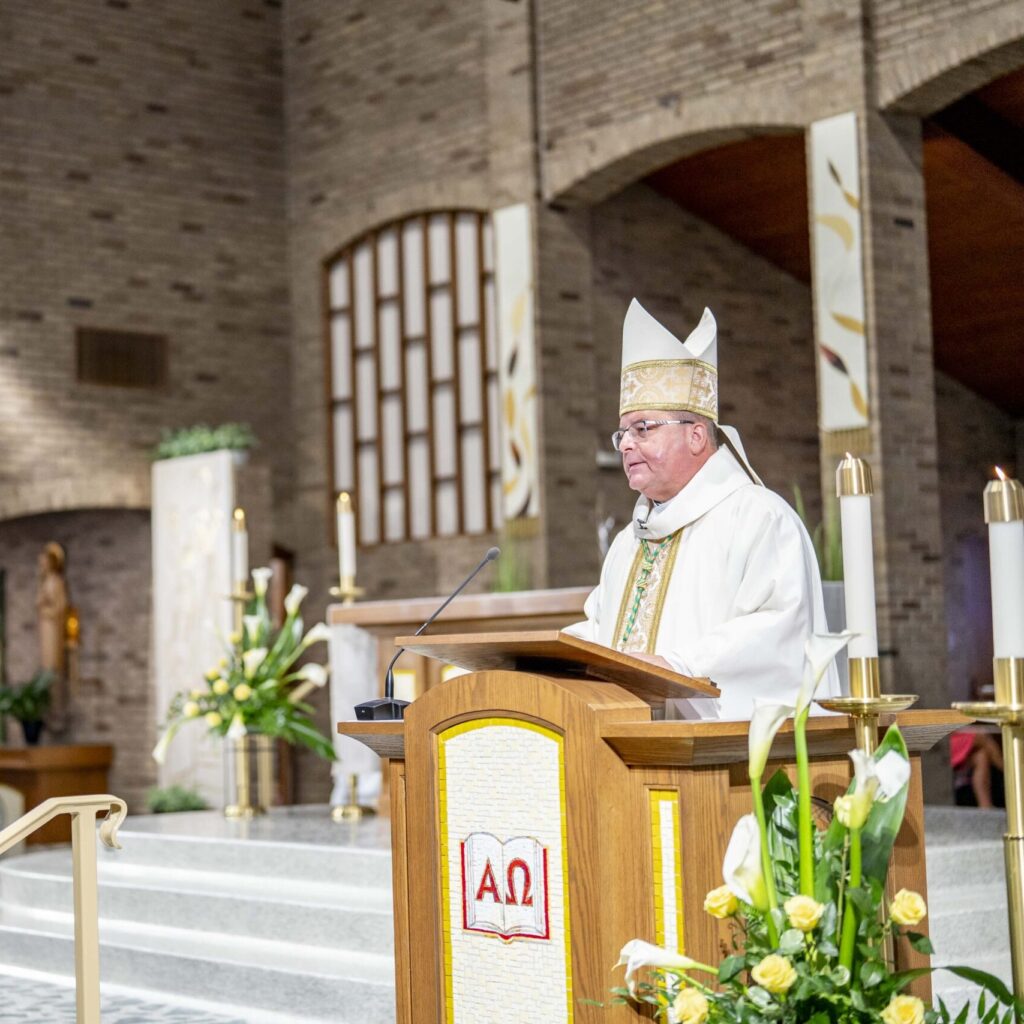
When I was a young priest, my pastor was kind enough to give me a Sunday morning off so that I could run in the 6.2-mile Great Race in Pittsburgh. This annual event takes place every September, attracting thousands of runners who pound the hilly terrain through city neighborhoods. The finish line that year was in Point State Park.
It was my first professional race, and I was admittedly challenged because I was not a long-distance runner. I ran that race, not just for fun, but also as a fundraiser for our parish youth group. I solicited donations for every mile I ran.
As I made my way down the Boulevard of the Allies and approached Point State Park, I could feel the fatigue attacking my body. As I continued my run along the course at a faster pace, I could hear amid the crowd people calling my name, “Father Dave! Father Dave!” I looked to my right and, lo and behold, there were some members of the parish youth group cheering me on and holding a big homemade sign encouraging me to finish strong. When I heard those voices and saw that sign, I found hope and successfully completed the race.
I humbly share this story, not to draw attention to myself, but to illustrate the power of hope. Hope can make such a difference in one’s journey. The presence and encouragement of those young people standing on the sidewalk waiting for me to pass by was a compelling sign of hope for me to finish the race. They could have been anywhere else that Sunday morning, but they intentionally chose to be a sign of hope to me.
As you know by now, Pope Francis has declared this year of 2025 a Holy Year of Jubilee—and this one promises to be full of hope. In fact, the theme for this jubilee year is “Pilgrims of Hope.” In his Bull of Indiction announcing the jubilee year, Spes Non Confundit (“Hope Does Not Disappoint”), Pope Francis writes, “During the Holy Year, we are called to be tangible signs of hope to those of our brothers and sisters who experience hardships of any kind” (No. 10). Among these people in need of hope, the Holy Father identifies the prisoners, sick, young, migrants, exiles, refugees, elderly—especially grandparents—and poor. There are many people in our path looking for a sign of hope. We can be that sign of hope. A friendly smile, a word of affirmation or encouragement, an open ear, a supportive note or text, or a phone call can make such a difference in the life of someone facing hardship or despair.
In the same Bull of Indiction, Pope Francis also announces the opening of the Holy Door “to invite everyone to an intense experience of the love of God that awakens in hearts the sure hope of salvation in Christ.”
Even though many of us will not be able to cross the threshold of the Holy Door in Rome this year, it does not diminish or limit the possibilities of grace that can come our way. I invite you to behold the doors of your parish church as “Holy Doors” of sorts. When you enter, be intentional and aware of what you are stepping into—you are leaving the world and entering God’s house. Place yourself in God’s trust and grace. At the same time, when preparing to receive Holy Communion, be mindful of the doors of your heart through which Christ will enter. Allow the presence, power and peace to be a sign of hope for you on your journey through life. And when you exit church, commit to becoming a sign of hope to all those whom you encounter.
Historically, a time of jubilee is often associated with the forgiveness of debts as well. The Holy Father speaks of this in terms of international relations and the work of justice, but I would like us to make it more personal. How sad it is when we drift apart from friends and family members, and cease speaking to one another because of a hurtful event. Yet sometimes the person we struggle with in this regard is the one in the mirror. The jubilee year offers the possibility of a new beginning through forgiveness. In that vein, if any of you have been hurt in any way by the Church, I seek your forgiveness. Our pilgrimage through life is so much richer when we joyfully walk together in mutual love and respect and aspire to realize the prayer of Jesus, “That all may be one.”
Please allow me to conclude this reflection by quoting our Holy Father once again, as he seeks to be a sign of hope to us on our journey. He writes, “Through our witness, may hope spread to all those who anxiously seek it … May the power of hope fill our days, as we await with confidence the coming of the Lord Jesus Christ, to whom be praise and glory, now and forever” (No. 25).
Cuando era un joven sacerdote, mi pastor era tan amable que me daba libre un domingo por la mañana para que pudiera correr la Gran Carrera de 6,2 millas en Pittsburgh. Este evento anual se lleva a cabo cada septiembre y atrae a miles de corredores que recorren el terreno montañoso a través de los vecindarios de la ciudad. La meta ese año estuvo en Point State Park.
Fue mi primera carrera profesional, y es cierto que me sentí desafiado porque yo no era un corredor de larga distancia. Corrí esa carrera, no sólo por diversión, sino también para recaudar fondos para nuestro grupo juvenil parroquial. Solicité donaciones por cada milla que corriera.
Mientras avanzaba por el Boulevard of the Allies, acercándome al Point State Park, podía sentir el cansancio atacando mi cuerpo. Mientras continuaba corriendo por el recorrido a un ritmo más rápido, podía escuchar entre la multitud a la gente gritando mi nombre: “¡Padre Dave! ¡Padre Dave! Miré a mi derecha y, ahí, había algunos miembros del grupo de jóvenes de la parroquia animándome y sosteniendo un gran cartel hecho en casa alentándome a terminar con fuerza. Cuando escuché esas voces y vi esa signo, encontré esperanza y completé la carrera con éxito.
Comparto humildemente esta historia, no para llamar la atención sobre mí, sino para ilustrar el poder de la esperanza. La esperanza puede marcar una gran diferencia en el camino de uno. La presencia y el aliento de aquellos jóvenes parados en la acera esperando que pasara fue una signo convincente de esperanza para que terminara la carrera. Podrían haber estado en cualquier otro lugar ese domingo por la mañana, pero intencionalmente eligieron ser un signo de esperanza para mí.
Como ya saben ahora, el Papa Francisco ha declarado este año 2025 Año Santo de Jubileo, y éste promete estar lleno de esperanza. De hecho, el tema de este año jubilar es “Peregrinos de la esperanza”. En su Bula de Indicción que anuncia el año jubilar, Spes Non Confundit (“La esperanza no decepciona”), el Papa Francisco escribe: “Durante el Año jubilar, estamos llamados a ser signos tangibles de esperanza para tantos hermanos y hermanas que viven en condiciones de penuria”. (No. 10) Entre estas personas necesitadas de esperanza, el Santo Padre identifica a los presos, los enfermos, los jóvenes, los inmigrantes, los exiliados, los refugiados, los ancianos –especialmente los abuelos– y los pobres. Hay muchas personas en nuestro camino buscando una señal de esperanza. Podemos ser ese signo de esperanza. Pequeñas cosas como una sonrisa amistosa, una palabra de afirmación o aliento, un oído abierto, una nota o un mensaje de texto de apoyo o una llamada telefónica pueden marcar una gran diferencia en la vida de alguien que enfrenta dificultades o desesperación.
En la misma Bula de Indicción, el Papa Francisco también anuncia la apertura de la Puerta Santa, “para invitar a la experiencia viva del amor de Dios, que suscita en el corazón la esperanza cierta de la salvación en Cristo”.
Aunque muchos de nosotros no podremos cruzar el umbral de la Puerta Santa en Roma este año, eso no disminuye ni limita las posibilidades de gracia que se nos pueden presentar. Los invito a contemplar las puertas de su iglesia parroquial como una especie de “Puertas Santas”. Cuando entren, sean intencionales y conscientes de adónde están entrando: están dejando el mundo y entrando en la casa de Dios. Pónganse en la confianza y la gracia de Dios. Al mismo tiempo, cuando se preparen para recibir la Sagrada Comunión, tengan presente las puertas de su corazón por las que entrará Cristo. Permitan que la presencia, el poder y la paz sean un signo de esperanza para ustedes en su viaje por la vida. Y cuando salgan de la iglesia, comprométanse a convertirse en un signo de esperanza para todos aquellos con quienes se encuentren.
Históricamente, un tiempo de Jubileo a menudo también se asocia con la condonación de las deudas. El Santo Padre habla de esto en términos de relaciones internacionales y de trabajo de justicia, pero me gustaría que lo hiciéramos más personal. Qué triste es cuando nos alejamos de amigos y familiares y dejamos de hablarnos unos a otros debido a un acontecimiento doloroso. Sin embargo, a veces la persona con la que luchamos en este sentido es la que está en el espejo. El Año Jubilar ofrece la posibilidad de un nuevo comienzo a través del perdón. En ese sentido, si alguno de ustedes ha sido herido de alguna manera por la Iglesia, pido su perdón. Nuestro peregrinaje por la vida es mucho más rico cuando caminamos juntos con alegría en amor y respeto mutuos y aspiramos a realizar la oración de Jesús: “Que todos sean uno”.
Permítanme concluir esta reflexión citando una vez más a nuestro Santo Padre, que busca ser un signo de esperanza para nosotros en nuestro camino. Él escribe: “Que mediante nuestro testimonio, la esperanza se extienda a todos aquellos que ansiosamente la buscan… Que la fuerza de esa esperanza pueda colmar nuestro presente en la espera confiada de la venida de Nuestro Señor Jesucristo, a quien sea la alabanza y la gloria, ahora y por los siglos futuros” (n° 25)
